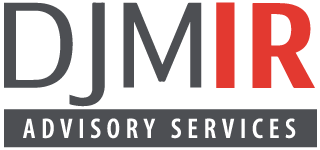What To Do If The Union Comes Knocking
 The rights of a union official to enter premises is generous under the Fair Work Act 2009 and in most circumstances, you’re asking for trouble if you try and prevent them accessing the workplace without a very good reason. Equally, they cannot just turn up or have repeated visits for no good reason and sit about drinking your coffee.
The rights of a union official to enter premises is generous under the Fair Work Act 2009 and in most circumstances, you’re asking for trouble if you try and prevent them accessing the workplace without a very good reason. Equally, they cannot just turn up or have repeated visits for no good reason and sit about drinking your coffee.
The Basics
A union official, just like any other person, can enter your premises if you let them in. A union official however, who is attending your service to undertake “union business”, can only enter a service to carry out that work if they have:
a) a valid right-of-entry permit issued by the Fair Work Commission; and
b) they wish to visit the workplace to:
i) look into a suspected breach of workplace laws, for example. This includes the National Employment Standards, an award, a registered agreement or workplace healthy and safety laws (in some states and territories) or
ii) an employee wants to speak to them.
When a union official enters a workplace, they can only speak with a worker if:
a) the worker wants to speak to them; or
b) there is a suspected breach of entitlements or a safety issue and the worker is entitled to be represented by that union.
What Rules Apply When A Union Official Enters The Workplace
Entry Permits
When a union official arrives at your service, they must show you their right-of-entry permit if you ask to see it. They also must show it to you when they want to access documents.
If the official has a valid entry permit and has complied with the relevant rules below, you cannot stop them from entering the workplace.
Prior Notice of a Visit
Before anyone from the union turns up on union business, they must give written notice of that intention at least 24 hours but no more than 14 days before the intended visit date.
If the date doesn’t suit you for any operational reason, you must contact the union immediately to advise them and we suggest you provide some alternative dates that will not disrupt the service.
What Can They Do on Site
Where there is a suspected breach, union officials can:
a) inspect any work, process or object that relates to the suspected breach;
b) interview any person related to the suspected breach (if the person is entitled to be represented by the union and willing to be interviewed);
c) meet with employees (if the employees are entitled to be represented by the union and willing to meet with the union); and
d) access records relating to the suspected breach.
What Can’t They Do on Site
Union officials can’t:
a) ask to see the records of a non-union member, except with the express permission from that person;
b) talk with employees during paid work time – NOTE: discussions at work can only be during meal and other breaks.
Accessing Documents and Records
The right-of-entry permit allows a union official to inspect and copy any record or document that is directly relevant to a suspected breach where:
a) it is kept on the premises; or
b) it is accessible from a computer that is kept on the premises.
The records must substantially relate to a member of the union and the right-of-entry permit must be shown when the union wants to access documents.
Access to meeting rooms for discussions and interview
Union officials have to be given access to a meeting room for discussions or interviews including discussions about membership or whatever campaign the union is running at the time.
Most services provide them with access to the programming area or office for privacy.
If the union official doesn’t want to go into a programming room or the office (they don’t agree with your suggestion), they can insist on holding discussions and interviews at the place where the worker is normally allowed to take breaks.
What Should You Do with Your Staff
1. Let all staff know when a union official will be attending the centre and that they can speak to them during rostered breaks if they want to.
2. Make sure your staff understand that they also have a right to not speak to the union. In the same way that employers cannot bully staff, union officials aren’t allowed to do it either with serious repercussions if they do.
3. If the union won’t sit in a prepared office and demand to sit in the staff room, give all staff an alternative place to go for breaks if they don’t wish to sit in the staff room and be spoken to by the official.
And finally, unless the official has the appropriate clearance to be in a service unsupervised, a staff member or owner of the service must stay in the presence of the official at all times, wherever that may be within the service. The official is also required to be signed in just like everyone else.
Further help and assistance
If you need assistance to develop or review your offers of employment, restraint or confidentiality agreements, contact DJMIR on (02) 6236 8966 or my email via djm@djmir.com.au
Article published: 03/09/2017 | Last modified: 06/09/2017 |
